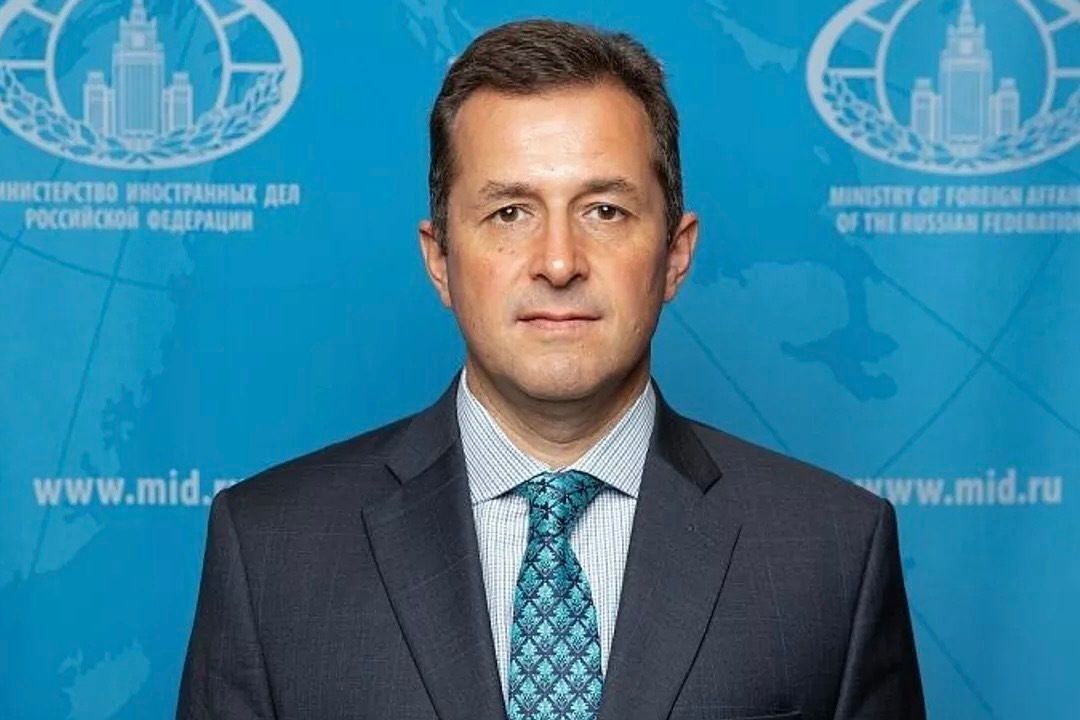
Mikael Agasandyan, a representative of the Russian Foreign Ministry, told Russian state-run media that if Yerevan takes steps that contradict the laws of the Eurasian Economic Union (EAEU), Russia has ‘the necessary international legal mechanisms to protect the interests of the other member states of the association’.
Meanwhile, Agasandyan expressed hope that it would not happen, adding that the Armenian side ‘has never stated’ its intention to withdraw from the Russian-led union.
Instead, Armenia ‘continues active and fruitful work in all negotiation formats within the union’, which the Russian side considers ‘as a confirmation of Yerevan’s commitment to the further development of Eurasian integration’.
Ria Novosti’s interview with Agasandyan, who serves as the Director of the First Department of the Commonwealth of Independent States (CIS) Countries, was published on Thursday.
His statement came in response to a question if documents were ‘being prepared on Yerevan's exclusion from the EAEU’, considering that on 26 March the Armenian Parliament adopted a bill that calls on the government to seek EU integration.

Ria Novosti’s journalist also referenced a statement from Russian Deputy Prime Minister Aleksei Overchuk, who stated in January 2025 that Moscow considered Yerevan’s decision to back Armenia’s EU membership draft law to be ‘the beginning of Armenia's withdrawal from the EAEU’.
It was one of several swift and sarcastic reactions from Russia. The issue was touched upon during a recent call between Prime Minister Nikol Pashinyan and Russian President Vladimir Putin, with Putin offering ‘his comments and assessments’ on the matter.
On Thursday, Agasandyan called Armenia as ‘an important member’ of the union, considering which he said they ‘cannot help but be concerned about Yerevan’s steps to move closer to the European Union [...] that has a clearly anti-Russian position’.
The adopted law was a ‘declarative’ and at the moment did not imply any actions that ‘would call into question Armenia’s membership in the EAEU’, Agasandyan said. However, he added that it was ‘obvious’ that later ‘Brussels’ demands — an inevitable part of the “European path” — will conflict with Yerevan’s obligations within the [EAEU]’.
Back in January, shortly after the Armenian government greenlit the bill, Armenian Economy Minister Gevorg Papoyan stated that ‘under no circumstances we think of replacing the EAEU with something’.
‘We want to be independent, and independence is when you depend on everyone, not on one, and everyone depends on you to some extent’, he added.

On Thursday, Agasandyan said that they had ‘explain[ed] the objective incompatibility’ of the EU and EAEU to the Armenian side and that Yerevan was ‘well aware of the benefits’ of its membership in the EAEU and the ‘negative consequences of leaving it’.
He further claimed that the EU would be unable ‘to compensate for the inevitable losses for the Armenian economy’.
The EU and EAEU mandates its members to follow their own set of internal rules and standards, which are not compatible with each other. Both organisations also include a customs union — a free trade zone with unified trade tariffs on outside imports.











